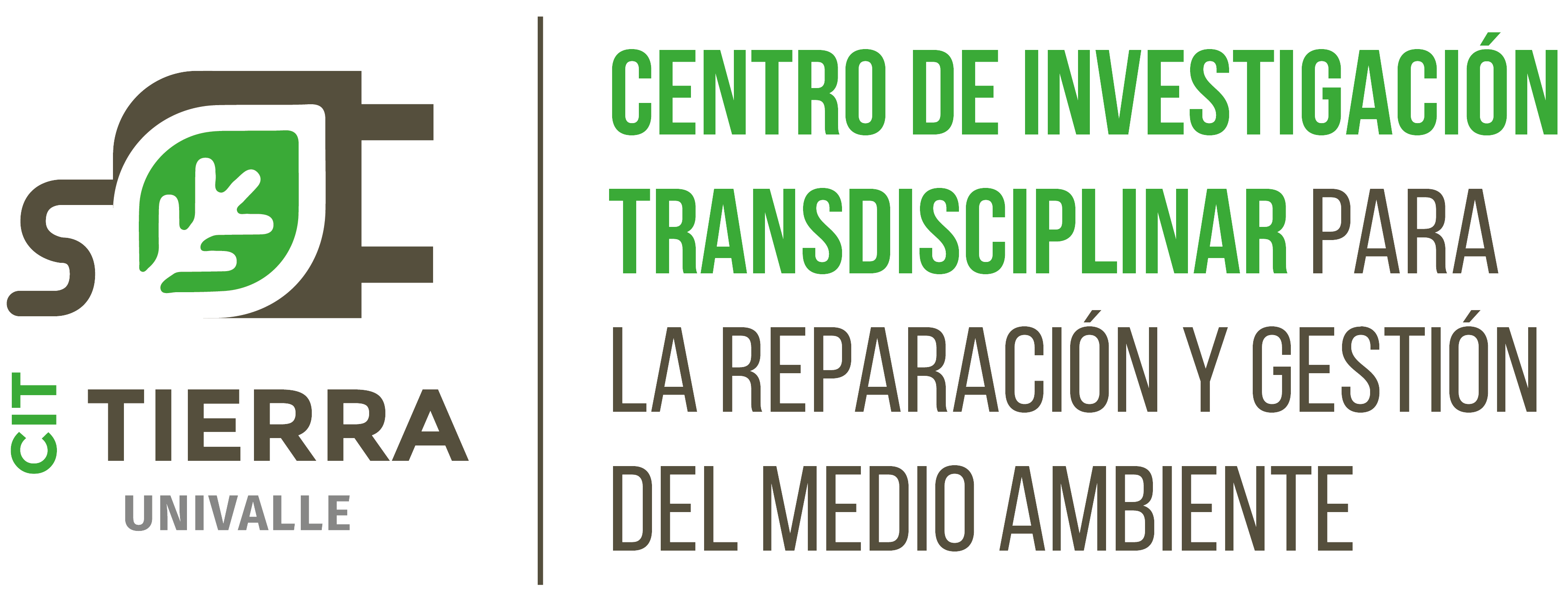Reduction of carbon emissions through the blending of hydrogen/natural gas in the natural gas distribution networks of Bolivia
DOI:
https://doi.org/10.52428/20758944.v19iEspecial.452Keywords:
blending, Hidrógeno, Gas natural, Descarbonización, Inyección de hidrógeno en tubería de gas natural, Reducción de emisones de carbonoAbstract
The high consumption of fossil fuels in electricity generation and industrial processes, representing more than a third of global greenhouse gas (GHG) emissions, are a priority in the search for decarbonization. On the other hand, hydrogen is a clean, sustainable fuel with a low pollution rate, in addition to being an energy vector, it is also a raw material to contribute to the decarbonization of the planet by blending natural gas with hydrogen. However, it is subject to design and transportation limitations through the natural gas distribution network. Therefore, an analysis of the investigations for the transport system and all secondary equipment will allow an overview of its feasibility of use. This article presents a bibliographic review on different sources of hydrogen production and hydrogen blending parameters in the natural gas network as an alternative to reduce carbon emissions in Bolivia, based on 5 of the 17 Sustainable Development Goals established by the United Nations Organization (UN).
Keywords: Blending. Hydrogen. Natural gas. Decarbonization. Hydrogen injection in natural gas pipelines. Reduction of carbon emissions.
Abbreviations: Hydrogen ( ), carbon dioxide ( ), hydrogen injection into natural gas grids (HIGG), Steam methane reforming (SMR); Autothermal reforming (ATR); Carbon capture and storage (CCS), liquefied natural gas (LNG).
Downloads
References
Aguado Molina, R., Casteleiro Roca, J. L., Jove Pérez, E., Zayas Gato, F., Quintián Pardo, H., & Calvo Rolle, J. (2021). Hidrógeno y su almacenamiento: el futuro de la energía eléctrica. Universidade da Coruña, Servizo de Publicacións, XII, 154. doi:https://doi.org/10.17979/spudc.9788497497985 DOI: https://doi.org/10.17979/spudc.9788497497985
https://doi.org/10.17979/spudc.9788497497985
Aguado Molina, R., Casteleiro Roca, J. L., Jove Pérez, E., Zayas Gato, F., Quintián Pardo, H., & Calvo Rolle, J. L. (2021). Hidrógeno y su almacenamiento. Coruña, España: Universidade da Coruña. doi:https://doi.org/10.17979/spudc.9788497497985
Aqua Consultants, Element Energy. (2021). New Zealand Hydrogen Pipeline Feasibility. Nueva Zelanda: Provincial Development Unit.
Boudellal, M. (2018). Power-to-Gas. Alemania: DE GRUYTER. doi:10.1515/9783110559811-001 DOI: https://doi.org/10.1515/9783110559811
https://doi.org/10.1515/9783110559811
Brijaldo MH, Castillo C, Pérez G. . (2021). Principales Rutas en la Producción de Hidrógeno. INGENIERÍA Y COMPETITIVIDAD, 23(2). doi:https://doi.org/10.25100/iyc.v23i2.11155 DOI: https://doi.org/10.25100/iyc.v23i2.11155
https://doi.org/10.25100/iyc.v23i2.11155
Castells, X. E. (2013). Reciclaje De Residuos Industriales. En X. E. Castells, Reciclaje De Residuos Industriales (pág. 92). Madrid, España.
Christopher J. Quarton, Sheila Samsatli. (December de 2018). Power-to-gas for injection into the gas grid: What can we learn from real-life projects, economic assessments and systems modelling? ELSEVIER, 98, 302 - 316. doi:https://doi.org/10.1016/j.rser.2018.09.007 DOI: https://doi.org/10.1016/j.rser.2018.09.007
https://doi.org/10.1016/j.rser.2018.09.007
Duarte, H. A. (16 de Marzo de 2016). Producción de Hidrógeno a partir de materias primas renovables derivadas de biomasa. Universidad Nacional del Litoral. Facultad de Ingeniería Química; Argentina. Obtenido de http://hdl.handle.net/11185/983
E.M.do Sacramento, Paulo C.M.Carvalho, L.C.de Lima, T.N.Veziroglu. (Noviembre de 2013). Energy Policy - Feasibility study for the transition towards a hydrogen economy: A case study in Brazil. ELSEVIER, 62, 3-9. doi:https://doi.org/10.1016/j.enpol.2013.06.071 DOI: https://doi.org/10.1016/j.enpol.2013.06.071
https://doi.org/10.1016/j.enpol.2013.06.071
Emsley, J. (2001). Nature's Building Blocks (First Edition ed.). October 12, 2011: Oxford: Oxford University Press.
ENDE. (22 de Julio de 2022). Ende Guaracachi. Obtenido de https://guaracachi.com.bo/index.php/publicaciones/noticias/249-ende-guaracachi-instala-planta-de-hidrogeno-para-ciclo-combinado
Energy., U. D. (s.f.). ENERGY.GOV. Recuperado el Agosto de 2022, de https://www.energy.gov/eere/fuelcells/hydrogen-and-fuel-cell-technologies-office
Ghimire, A., Frunzo, L., Pirozzi, F., Trably, E., Escudie, R., Lens, P. N., & Esposito, G. (15 de April de 2015). A review on dark fermentative biohydrogen production from organic biomass: Process parameters and use of by-products. Applied Energy, 144, 73-95. DOI: https://doi.org/10.1016/j.apenergy.2015.01.045
https://doi.org/10.1016/j.apenergy.2015.01.045
Gobierno de España. (2022). Ministerio para la Transición Ecológica y el Reto Demográfico. Obtenido de https://energia.gob.es/gas/Gas/Paginas/gasnatural.aspx
Götz Thilo Müller von der Grün, Steven Hotopp,Joachim Müller-Kirchenbauer. (2013). Transport and Usage of Hydrogen via Natural Gas Pipeline Systems. (M. H. al., Ed.) Springer., 421-436. doi:10.1007/978-3-642-37849-2_33 DOI: https://doi.org/10.1007/978-3-642-37849-2_33
https://doi.org/10.1007/978-3-642-37849-2_33
Gupta, R. B. (2009). Hydrogen fuel : production, transport, and storage. United States of America: CRC Press is an imprint of Taylor & Francis Group, an Informa business. DOI: https://doi.org/10.1201/9781420045772
https://doi.org/10.1201/9781420045772
IEA. (Septiembre de 2022). Hydrogen. IEA. Obtenido de https://www.iea.org/reports/global-hydrogen-review-2022, License: CC BY 4.0
International Energy Agency, I. (Enero de 2006). Hydrogen Production and Storage R&D. (I. Publications, Ed.) Paris, Francia: Head of Publications. Recuperado el 12 de Julio de 2021, de books@iea.org
J. P. Hodges, W. Geary, S. Graham, Philip Hooker, R. Goff. (01 de January de 2015). Injecting Hydrogen into the Gas Network- A Literature Search. Institution of Gas Engineers and Managers (IGEM). Obtenido de https://www.h2knowledgecentre.com/content/policypaper1193
James E.House, Kathleen A.House. (2016). Chapter 7 - Hydrogen. Academic Press, 111 - 121. doi:https://doi.org/10.1016/B978-0-12-804697-5.00007-5 DOI: https://doi.org/10.1016/B978-0-12-804697-5.00007-5
https://doi.org/10.1016/B978-0-12-804697-5.00007-5
Linares Hurtado, J. I., & Moratillas Soria, B. Y. (2007). El Hidrogeno y la Energia. España.
Llera Sastresa, E. M., & Zabalza Bribián, I. (2011). Hidrógeno: producción, almacenamiento y usos energéticos.
https://doi.org/10.26754/uz.978-84-15274-94-0
Lucena, F. J. (Mayo de 2010). análisis de sistemas integrados de producción de hidrogeno a partir de energía eólica aportaciones al modelo dinámico de sistemas. Sevilla.
M.ª Llera Sastresa, E., & Zabalza Bibrián, I. (2011). Producción, almacenamiento y usos energéticos. En Hidrógeno : producción, almacenamiento y usos energéticos (1.ª edición ed.). Zaragoza, España: Prensas Universitarias de Zaragoza. DOI: https://doi.org/10.26754/uz.978-84-15274-94-0
https://doi.org/10.26754/uz.978-84-15274-94-0
MarcoGaz. (01 de Octubre de 2019). Overview of available test results and regulatory limits for hydrogen admission into existing natural gas infrastructure and end use - TF_H2-427. Obtenido de https://www.MARCOGAZ.org/publications-1/documents/
McMurry E., John Y Fay C., Robert. (2009). Química General. Mexico: PEARSON EDUCACIÓN.
Ministerio De Hidrocarburos Y Energias, M. (27 de Febrero de 2021). Ministerio De Hidrocarburos Y Energias. Obtenido de https://www.mhe.gob.bo/2021/02/27/bolivia-impulsa-un-plan-para-la-generacion-de-hidrogeno-verde-rumbo-a-la-transicion-energetica/
ONU. (2018). La Agenda 2030 y los Objetivos de Desarrollo Sostenible: una oportunidad para América Latina y el Caribe (LC/G.2681-P/Rev.3). Naciones Unidas, Santiago.
Pearson, M. (12 de Julio de 2018). Dispelling Common Hydrogen Safety Myths. Ballard. Obtenido de https://blog.ballard.com/hydrogen-safety-myths
Piqué, J. L. (2010). El Hidrogeno Y Nuestro Futuro Energético (Primera ed.). (S. Edicions de la Universitat Politècnica de Catalunya, Ed.) Catalunya, España: UPC. Recuperado el 18 de Julio de 2021, de www.edicionsupc.es
Polman EA, de Laat JC, Crowther M. (2003). Reduction of CO2 emissions by adding hydrogen. Report. International Energy Agency. Obtenido de https://ieaghg.org/docs/General_Docs/Reports/Ph4-24%20Hydrogen%20in%20nat%20gas.pdf.
Ram B. Gupta, A. B. (Ed.). (2015). Compendium of Hydrogen Energy. Woodhead Publishing Series in Energy, 2, 438. doi:https://doi.org/10.1016/C2014-0-02673-1
Relaciones Externas Bolivia, M. (2 de Junio de 2017). Ministerio De Relaciones Externas. Obtenido de https://www.cancilleria.gob.bo/webmre/node/2057
Romilio Tambutti, Hector Muñoz. (2002). Fisica/ Physics. Mexico, D.F.: LIMUSA, S.A.
Rudolf, C. H. (1977). Quimica General. Barcelona, España: Reverte, S.A. Recuperado el 1 de Julio de 2022, de https://books.google.es/books?id=CrMTtgiB2wcC&pg=PA15&dq=masa+atomica+hidrogeno+1,007&hl=es&sa=X&ved=0ahUKEwiov6au4trcAhWkyIUKHZzPApQQ6AEIJzAA#v=onepage&q=masa%20atomica%20hidrogeno%201%2C007&f=false
Speirs J, Balcombe P, Johnson E, Martin J, Brandon N, Hawkes A. (2017). A greener gas grid: what are the options? Report. Obtenido de https://www.sustainablegasinstitute.org/a-greener-gas-grid. DOI: https://doi.org/10.1016/j.enpol.2018.03.069
https://doi.org/10.1016/j.enpol.2018.03.069
Stephen Clegg, Mancarella, Pierluigi. (01 de February de 2016). Storing renewables in the gas network: modelling of power-to-gas seasonal storage flexibility in low-carbon power systems. IET - The Institution of Engineering and Technology. doi: https://doi.org/10.1049/iet-gtd.2015.0439 DOI: https://doi.org/10.1049/iet-gtd.2015.0439
https://doi.org/10.1049/iet-gtd.2015.0439
Tabkhi, Firooz and Azzaro-Pantel, Catherine and Pibouleau, Luc and Domenech, Serge. (2008). A mathematical framework for modelling and evaluating natural gas pipeline networks under hydrogen injection . International Journal of Hydrogen Energy. doi:http://dx.doi.org/10.1016/j.ijhydene.2008.07.103 DOI: https://doi.org/10.1016/j.ijhydene.2008.07.103
https://doi.org/10.1016/j.ijhydene.2008.07.103
Trevor L. LeValley, Anthony R. Richard, Maohong Fan. (13 de Octubre de 2014). The progress in water gas shift and steam reforming hydrogen production technologies - A review. International Journal of Hydrogen Energy, 39(30), 16983 - 17000. doi:https://doi.org/10.1016/j.ijhydene.2014.08.041 DOI: https://doi.org/10.1016/j.ijhydene.2014.08.041
https://doi.org/10.1016/j.ijhydene.2014.08.041
U.S. Department Of Energy. (2001). Office of the Assistant Secretary Energy Efficiency & Renewable Energy. Recuperado el 2022, de https://www.energy.gov/eere/fuelcells/hydrogen-and-fuel-cell-technologies-office
Vargas, G. A. (2016). El Hidrógeno Como Fuente Alterna de Energía. CINVESTAV.
Wylie-Interscience. (2005). "Hydrogen". Van Nostrand's Encyclopedia of Chemistry., 797-799.
Zhiliang Cao, Henry Gu Cao. (2014). Unified Field Theory and Topology of Nuclei. International Journal of Physics, 2(1), 15-22. doi:10.12691/ijp-2-1-4 DOI: https://doi.org/10.12691/ijp-2-1-4
https://doi.org/10.12691/ijp-2-1-4
Zine labidine Messaoudani, Fotis Rigas, Mahar Diana Binti Hamid, Che Rosmani Che Hassan. (19 de October de 2016). Hazards, safety and knowledge gaps on hydrogen transmission via natural gas grid: A critical review. International Journal of Hydrogen Energy, 41 , 17511-17525. doi:https://doi.org/10.1016/j.ijhydene.2016.07.171. DOI: https://doi.org/10.1016/j.ijhydene.2016.07.171
Published
How to Cite
Issue
Section
License
Copyright (c) 2023 Henry Panozo Villca

This work is licensed under a Creative Commons Attribution 4.0 International License.
Authors who publish with this journal agree to the following terms:
- Authors retain copyright and grant the journal right of first publication with the work simultaneously licensed under a Creative Commons Attribution License 4.0 that allows others to share the work with an acknowledgement of the work's authorship and initial publication in this journal.
- Authors are able to enter into separate, additional contractual arrangements for the non-exclusive distribution of the journal's published version of the work (e.g., post it to an institutional repository or publish it in a book), with an acknowledgement of its initial publication in this journal.
- Authors are permitted and encouraged to post their work online (e.g., in institutional repositories or on their website) prior to and during the submission process, as it can lead to productive exchanges, as well as earlier and greater citation of published work.















